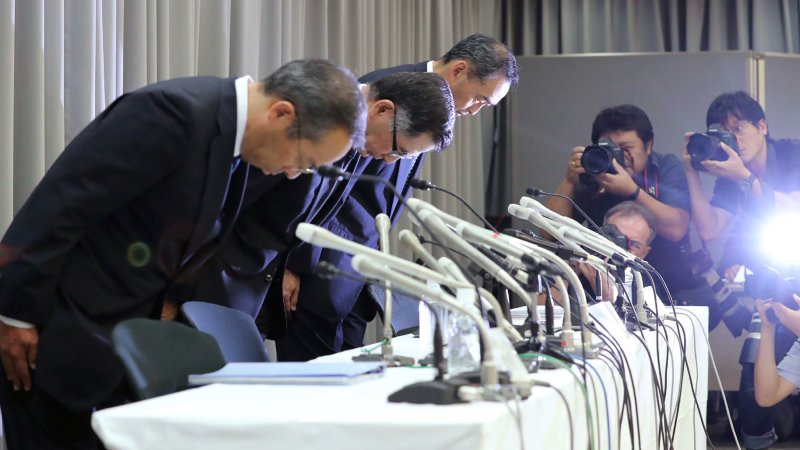Mazda, Suzuki, Yamaha — more vehicle data fabrication found in Japan

Mazda, Suzuki and Yamaha improperly tested vehicles for fuel economy and emissions, the Japanese government said on Thursday, revealing fresh cases of compliance failures by manufacturers.
The results came to light after the Japanese government had ordered the automakers to check their operations after revelations of improper testing at Subaru and Nissan last year.
The conduct of automakers globally has come under intense scrutiny after Germany's Volkswagen AG admitted in 2015 to installing secret software in hundreds of thousands of U.S. diesel cars to cheat exhaust emissions tests, and that as many as 11 million vehicles could have similar software installed worldwide.
In the Japanese cases, the carmakers have not broken any laws or prompted massive recalls. But a growing list of improprieties has tarnished the image of the country's manufacturing industry for high-quality products and efficiency.
Suzuki, Mazda and Yamaha cleared vehicles for emissions or fuel efficiency even in cases where they were tested under invalid conditions, the ministry said in a statement. The errors related to slight deviations in the speed of the vehicles during testing that should have invalidated the test results.
The automakers examined tests they had conducted over different periods of time, and in Suzuki's case they stretched back to 2012.
None of the automakers found significant problems with actual emissions and fuel economy performance of the vehicles, which were destined for sale in Japan, and do not plan any recalls.
Suzuki, Japan's fourth-largest automaker, said that of 12,819 sample vehicles tested for fuel economy and emissions since June 2012, around 50 percent of them had been inspected improperly.
"I deeply apologize and will lead efforts to prevent recurrence," Suzuki Chief Executive Toshihiro Suzuki told a news conference.
Mazda said there were irregularities in 4 percent of similar inspections on its cars, or just over 70 vehicles. In Yamaha's case, irregularities were found in 2 percent of inspections, or just a handful of vehicles.
Both Mazda and Yamaha apologized.
Suzuki and Yamaha shares fell 6 and 5 percent, respectively, and Mazda shares were down 1 percent, underperforming a steady benchmark Nikkei average.
In July this year, Nissan admitted it had improperly measured exhaust emissions and fuel economy for 19 vehicle models sold in Japan.
Kobe Steel, Mitsubishi Materials Corp and Toray Industries — all key suppliers of motor parts to global manufacturers — admitted to product data fabrication last year.
Related News


